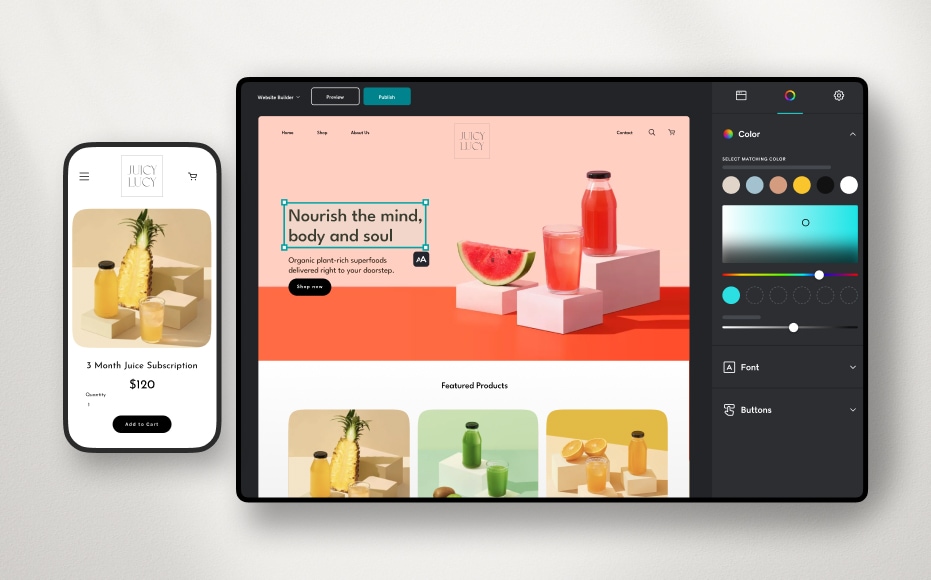In today’s digital age, having a website has become a crucial aspect for businesses and individuals alike. It serves as an online platform to showcase products, services, or ideas to a global audience. However, building a website from scratch can be a daunting task, especially for those with limited technical knowledge. This is where website builders come in.
Website builders are software tools that allow individuals and businesses to create websites without the need for coding or web design skills. They provide a user-friendly interface and pre-designed templates to make the website-building process quick and easy. In this article, we’ll explore the different types of website builders, their features, and their advantages and disadvantages.
Types of Website Builders
There are two main types of website builders: online and offline. Online website builders are web-based platforms that require an internet connection to use. On the other hand, offline website builders are software tools that can be downloaded and installed on a computer or a server.
Online Website Builders Online website builders are easy to use and require no technical skills. They are designed for individuals or small businesses looking to create a website quickly and at a low cost. The most popular online website builders include Wix, Squarespace, and Weebly.
How do website builders work?
Website builders typically work by providing you with a drag-and-drop editor, which you can use to add various elements to your website. These elements include text boxes, images, videos, buttons, forms, and more. Once you’ve added the elements to your website, you can then customize them to match your branding and design preferences.
Most website builders also provide a range of templates and themes to choose from. These templates are pre-designed website layouts that you can use as a starting point for your website. Once you’ve selected a template, you can then customize it to meet your specific needs and requirements.
Benefits of website builders
- Ease of use: Website builders are designed to be user-friendly and accessible to people with little or no technical expertise. You don’t need to have any coding knowledge to use a website builder. Instead, you can simply drag and drop elements onto your website and customize them as you see fit.
- Time-saving: Creating a website from scratch can be a time-consuming process, especially if you’re not familiar with coding languages. With website builders, you can create a website in a matter of hours or days, depending on the complexity of your website.
- Cost-effective: Hiring a web developer to create a website for you can be expensive. Website builders, on the other hand, are relatively affordable, with some even offering free plans. This makes website builders a great option for small businesses or individuals on a tight budget.
- Customization: Website builders offer a range of customization options, including templates, themes, and design elements. This allows you to create a unique and personalized website that reflects your brand and meets your specific needs.
Advantages of Online Website Builders
- No technical skills required: Online website builders are designed for people with no technical background. They provide a user-friendly interface and pre-designed templates that make the website-building process simple and easy.
- Low cost: Online website builders are affordable and often offer free plans. This makes them an excellent option for individuals or small businesses with a limited budget.
- Easy to update: Online website builders allow users to update their websites easily without the need for coding or web design skills.
- Hosting included: Online website builders provide hosting services, which means users do not have to worry about finding a hosting provider.
Disadvantages of Online Website Builders
- Limited customization: Online website builders provide pre-designed templates that may limit the customization options for the website.
- Limited functionality: Online website builders may not have all the features and functionality that a user may require for their website.
- Dependence on the provider: Online website builders are dependent on the provider, which means the user has limited control over the website.
Offline Website Builders Offline website builders are software tools that can be downloaded and installed on a computer or a server. They offer more control and customization options than online website builders. The most popular offline website builders include Dreamweaver, Mobirise, and Bootstrap Studio.
Advantages of Offline Website Builders
- More control: Offline website builders provide users with more control over the website design and functionality.
- Customization: Offline website builders allow users to create unique designs and features for their websites.
- No dependence on the provider: Offline website builders are not dependent on a provider, which means the user has complete control over the website.
Disadvantages of Offline Website Builders
- Technical skills required: Offline website builders require technical skills and knowledge of coding and web design.
- Higher cost: Offline website builders are more expensive than online website builders.
- Hosting and domain registration not included: Users must find their own hosting and domain registration services.
Conclusion Website builders have made it easy for individuals and small businesses to create websites without the need for technical skills. Online website builders are affordable and easy to use, while offline website builders provide more control and customization options. It is important to weigh the advantages and disadvantages of each type of website builder before choosing the one that best suits your needs.

